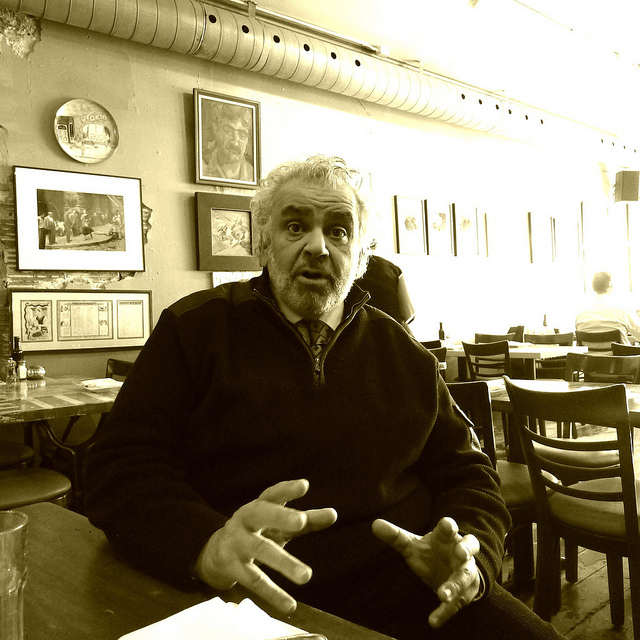
In the first of a brand new series we probe the memories and minds of some of the founding fathers of Toronto’s restaurant scene.
First up is a man who requires no introduction. If you happen to live anywhere near Yonge and Eglinton and have an appetite for authentic Italian cuisine, you are sure to have crossed the threshold of Roberto Dante Martella’s Grano. Having recently celebrated the establishment’s 25th anniversary, Roberto’s restaurant has become a veritable institution of hospitality.
Good Food Revolution: Hello Roberto. Now how long have you been involved in Toronto’s hospitality industry and where did you get your start?
Roberto Dante Martella: My late father, Antonio, was a barber and bon vivant who regularly hosted parties at our home including some travelling performers from Italy. He would call home on the spur of the moment to inform my saint of a mother to prepare for a dozen people! This, I suspect, were the seeds of hosting. As a kid I remember travelling on transatlantic ships (not today’s cruises) to and from Italy with my brother an dexperiencing the formal meals on board. My brother and I were always dressed in suits and people wondered whether we were midgets.
Travelling was always enriching enogastronomically. I was a roadie in Europe with a Japanese drummer group (then Ondekoza/now Kodo) and we stayed (and the group performed), for a number of days, at the Espace Pierre Cardin in Paris. There was an espresso machine and I surprised myself (and others!) about how I managed to tame the piston-driven beast. I still get brividi (goosebumps) when I experience the ethereal scent of freshly ground coffee. New wave baristas please note: one shot not doubles!
Upon my return from Europe I worked in a host of restaurants including Luigi’s Trattoria, Vittorio’s Osteria, La Cantina,.. At the time of Pierre Elliot Trudeau’s ‘second coming’ with his re-election in 1979, I was hired as GM for the Canadian Italian Business and Professional Association whose activities including monthly business meetings and galas which I organized.
This led to being hired by a local wine import agency which had been purchased by, then, Andrés wines. There was a fear in the fledgling serious Ontario wine industry about the hegemony of cheap imported wines and they were hedging their bets.
This led to further trips to Italy (including the first Vino Novello importation), liaising with the wine media, visiting restaurants,…
After a couple of years I embarked on my own to engage in food and wine importation which lasted for a short time but included representation of brands such as Avignonesi, Castello di Ama, Pasta Martelli and Birra Moretti. I had met Lucia, chef at grano, who became my partner at home and work. We opened grano in 1986 as much a cultural as culinary exercise. We both felt that the Italy with which we were raised was different than the modern Italy which had undergone ‘il boom economico’ post-war with thousands of immigrants having decamped to international shores.
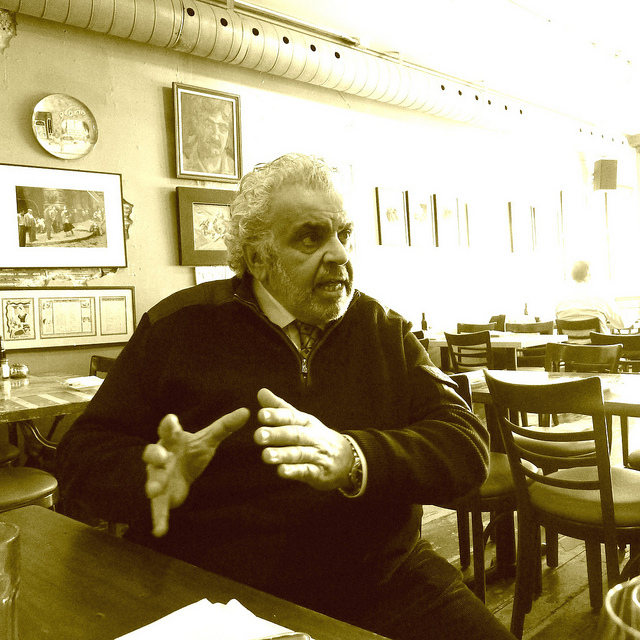
GFR: And although this is a huge question, what are the most significant changes that you have seen in the dining scene over the decades?
RDM: There have been many changes over the years both in our business and in the industry as a whole. We started serving wines in tumblers (trattoria and famiglia style). Wine as food was and is an Italian hallmark, however, Italy as a wine culture has become amongst the most advanced technically and sophisticated without ever losing that defining attitude.
Certainly the greatest advancements in the restaurant scene must include the training (grace à George Brown, Stratford,..) and self-confidence and awareness of young people both back and front of house. Let’s never forget the critical role of the Sri Lankan community. They are indispensable, hard and smart workers.
The locavore scene with wine, produce, charcuterie, cheeses,.. have made better clients and Ontarians. However, certain products in our Italian idiom for example, such as extra virgin olive oil, parmigiano reggiano, pomodori san marzano,… remain sui generis. We must never apologize for this. However, the jury is still out on whether a tractor trailer of lettuce from Mexico isn’t less of a carbon footprint than individual pickups and heads of local lettuce. Let’s not go loco. Vertical urban farms will place this in perspective. Apparently, Californian wine purchased in the US east of Ohio is less environmental than European wines.
Speaking of olive oil, we were amongst the first to feature it on the table eschewing the traditional butter. Something of a monster may have been created with poor quality extra virgin being complemented by balsamic vinegar and, worse, infusions informing the table. Buyer beware where olive oil is concerned and especially be aware that the common balsamic vinegar, though a useful product, is nothing other than wine vinegar with a caramel additive. Wine vinegar is due for a comeback.
We are what we eat and certainly awareness and appreciation of what we eat both, in our homes and in our boîtes, will make us better Ontarians I like this word which we don’t use enough. I also like the concept OnTerrio.
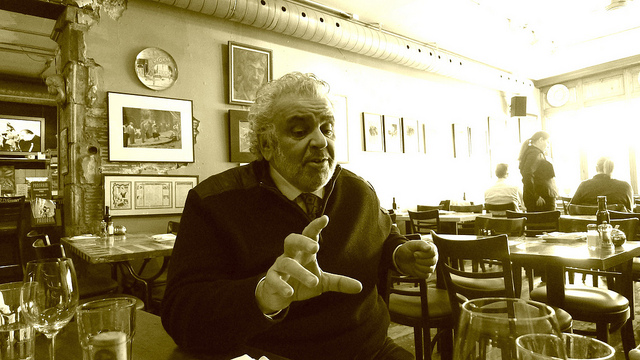
GFR: How do you feel about Toronto as a restaurant city? Do you feel as if we are world class in this department or do we still have some way to go?
RDM: The growing diversity of Toronto allows people in the industry to experience tastes not native to Toronto and broadens palates. The author Francine Prose wrote a splendid piece about this in the New York Times of Sunday March 2. I have contacted her and invited her to do an author’s dinner here at Grano for her upcoming novel. She has graciously agreed. She will be a judge at the 2014 Scotiabank Giller Prize in Toronto. Our dedication to the socio-cultural nature of a restaurant has given us great satisfaction over the years from author’s evenings, speakers series, wine dinners, charity fundraisers, political soirées…
One must remember that the original word restaurant referred to a kind of consommé not a place. The modern restaurant continues this tradition by feeding the soul. We continue to learn so much about the importance and meaning of food (not to mention its delicious pleasure and transformative nature), our guests and ourselves over meals in the places we frequent.
GFR: What with a number of New York Chefs opening outposts in our fair city, what do you think that this says about the evolution of our dining scene, and perhaps more poignantly global dining as a whole?
RDM: Toronto is certainly growing up in many aspects (transit not included), however, we need a good dose of circumspect modesty. The fact that international chefs are coming is positive as is the relaxed attitude of clients, cooks and commis. In such a relaxed atmosphere more attention is occasionally dedicated by the media to the lifestyle/celebrity side of dining. Knowledgable sommeliers (a fairly recent and welcome phenom in our midst), critics, both wine and food, have their place. TV’s all too frequent gastoporn and ‘reality’ food shows aside, there is a strong role for good media to educate and elucidate.
GFR: Does the future of the independent restaurant in Toronto look bleak or blissful from you point of view?
RDM: The future is certainly bright for dining à la Torontoise. Personally, we have a second generation of granoids involved, daughter Bianca and son Luca. I applaud their commitment and creativity. The Italian restaurant scene is well served by young second and third generation Italian Canadians who embrace and valorize the enogastronomic traditions of Italy. We are also well served by the Italian Trade Commission and the visits of many Italian wine and food producers. As are the French, Californians,… We Italian restaurateurs are also benefitting from economic challenges in Italy which sees the arrival of young Italians. This rejuvenates our Italian food scene and the culture of our community.
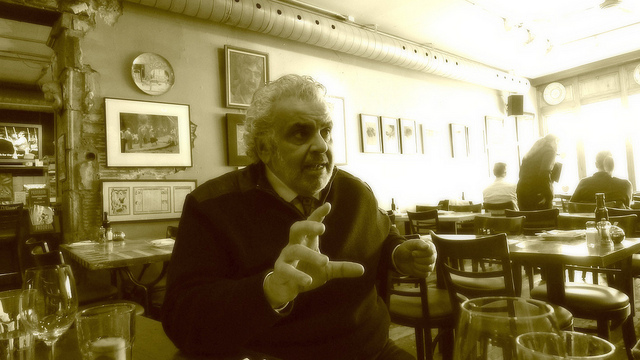
GFR: How do you feel the recent increase in minimum wage in Ontario impacts the restauranteur? Getting into the area of tips? Do you feel that serving staff should payout something to to the house for breakages and the like? What do you feel is fair or are such expenses just a cost of doing business? And what are your thoughts on the recent case regarding Mario Batali settling a lawsuit regarding skimming of tips to the tune of $5.25 million?
RDM: An increase in the minimum wage is de rigueur as will, alas, be a necessary increase in pricing. Gratuities are and must remain the property of the servers and skimming on the part of the house is reprehensible. We, though, do ask the servers to pay which the credit card deduction portion on their tips. Some may find this unacceptable.
GFR: And then of course we have the democratization of food writing… food bloggers… where do you stand on this particular issue?
RDM: One potentially distressing aspect about the otherwise wonderful internet, social media,… is the anonymity provided some disgruntled diners who, by all means, have the right to critique but an immediate response in the restaurant to the ubiquitous question about ‘how is everything?’ give both patron and ‘patron’ the opportunity to make things right and demonstrate mutual respect.
GFR: It appears to me that Toronto goes through very obvious trends in its restaurants (tacos, bacon on and in everything) I’d love to hear your thoughts on this topic? And what, in your sage wisdom, do you predict for the future?
RDM: Trends will come and go, however, quality, respect of ingredients and price/quality ratio will prevail.
GFR: Is there anything else you would like me to touch upon?
RDM: I have penned a piece about Toronto Trilingual and I believe that a full appreciation of the richness of our cultures and languages will include an appreciation of different culinary traditions.
GFR: Roberto, thank you very much for your time.
…

Edinburgh-born/Toronto-based Sommelier, consultant, writer, judge, and educator Jamie Drummond is the Director of Programs/Editor of Good Food Revolution… And he’s so happy to begin this new series with Roberto.



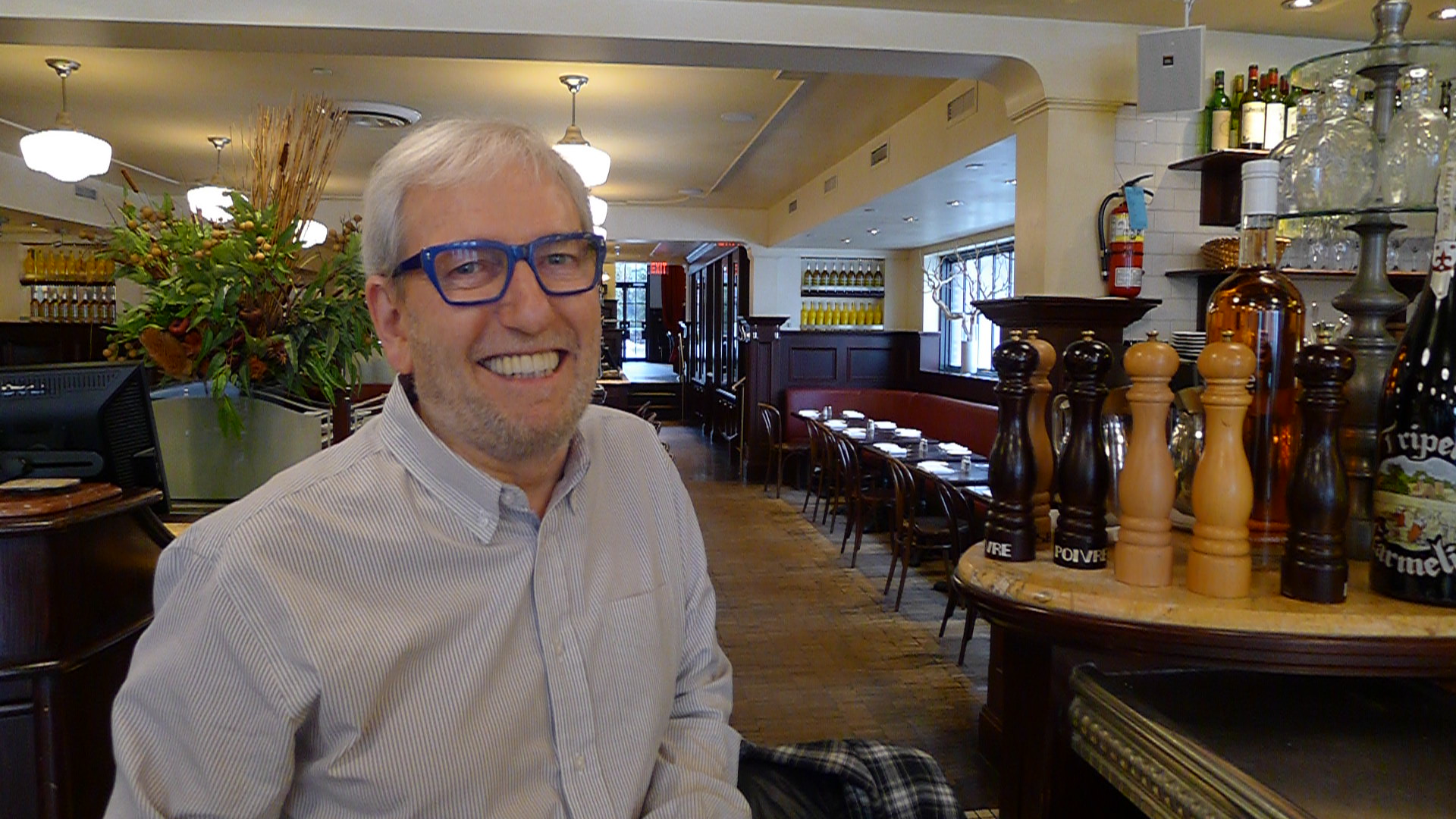
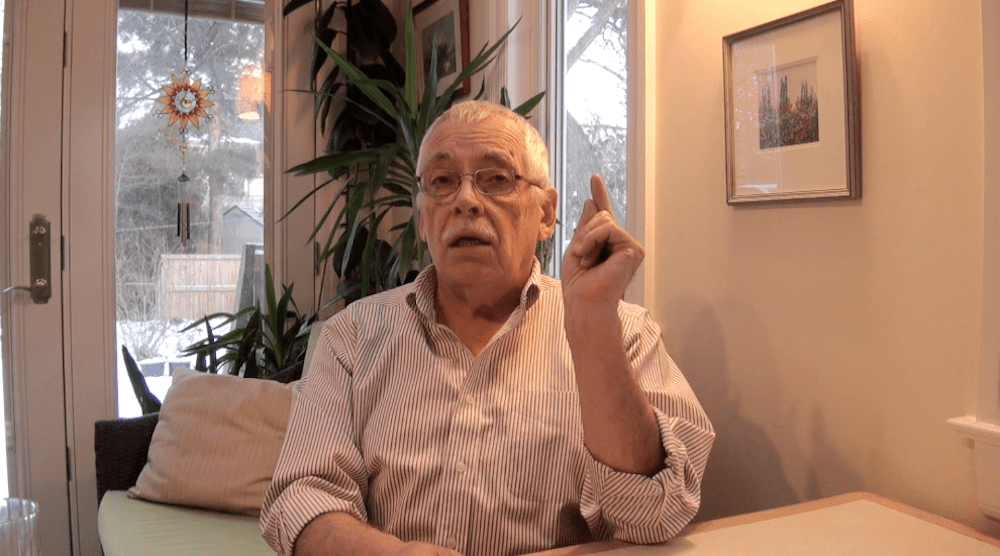

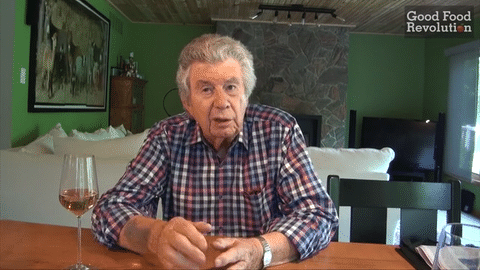

Bravo, Jamie It’s great to see you cutting edge guys remembering where Toronto’s scene came from and honouring the founding fathers. Can’t wait to see who you talk to next.